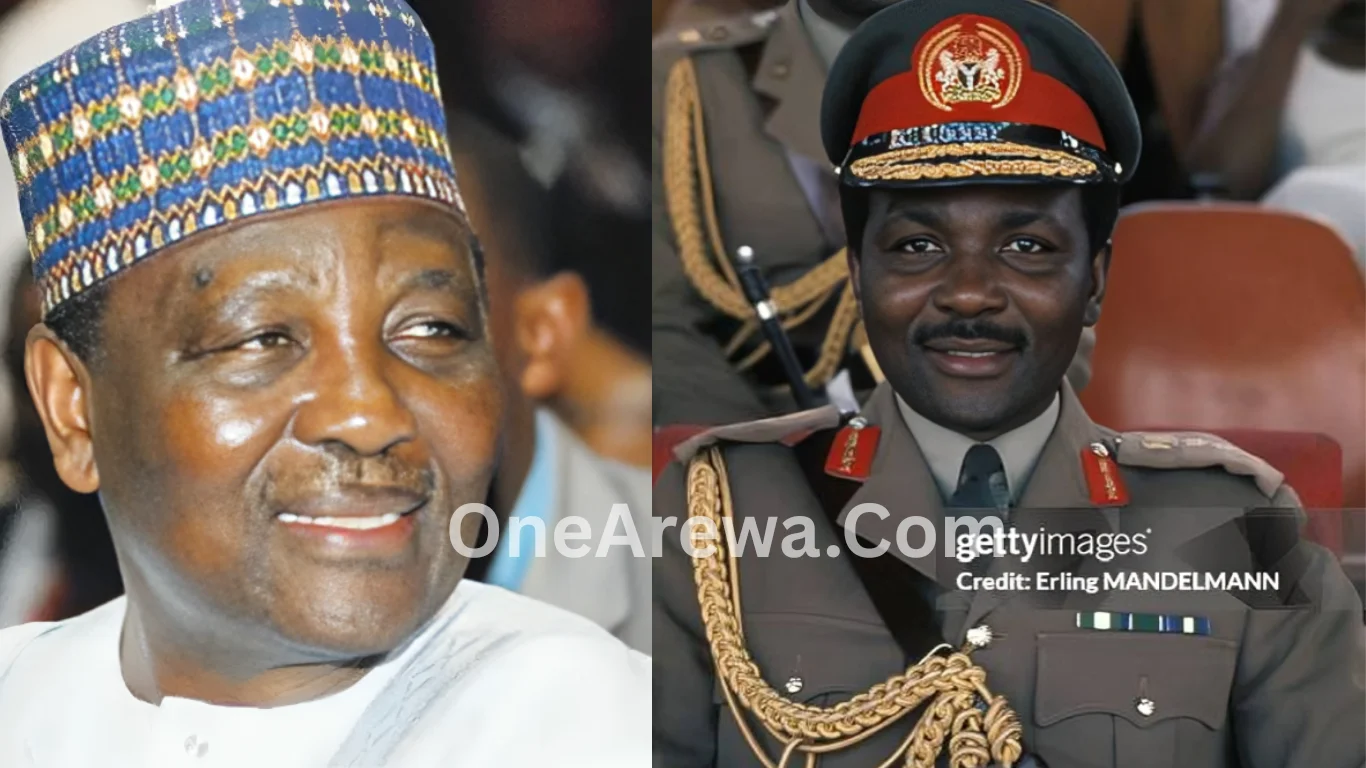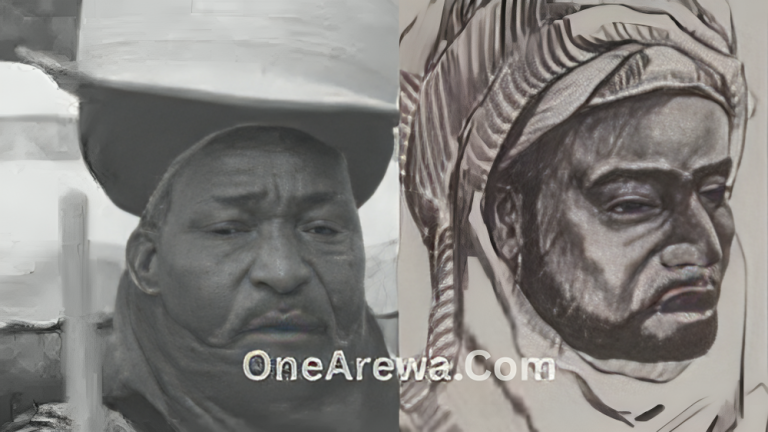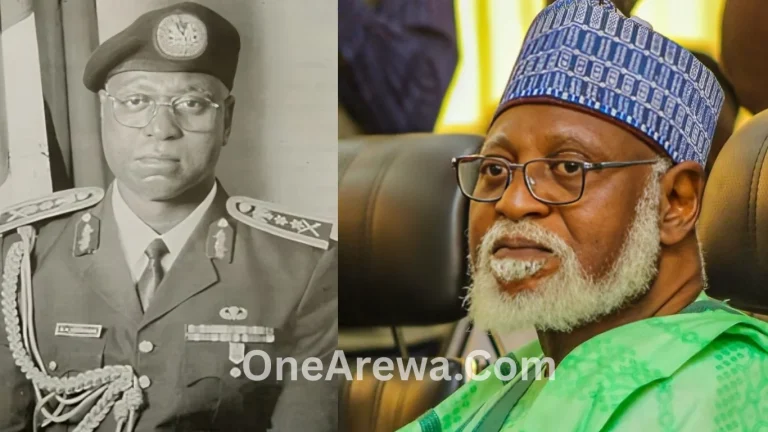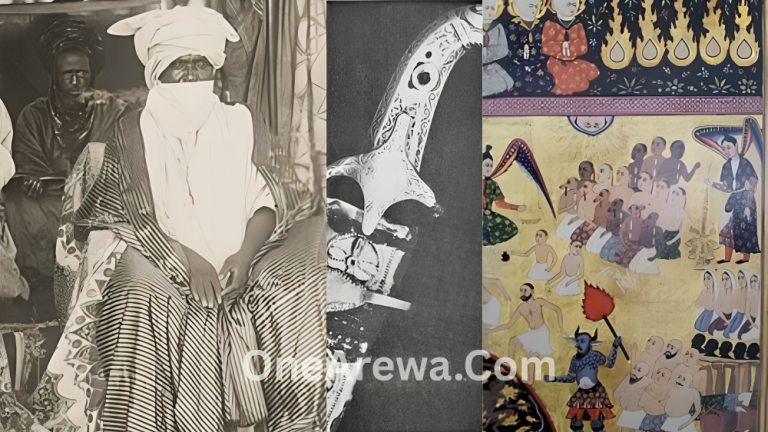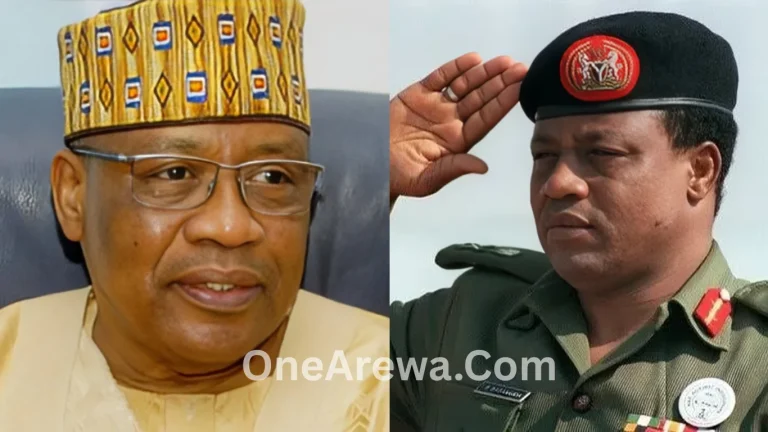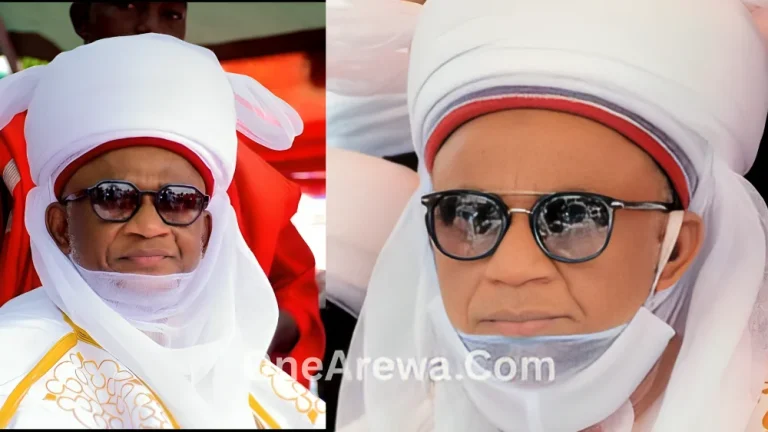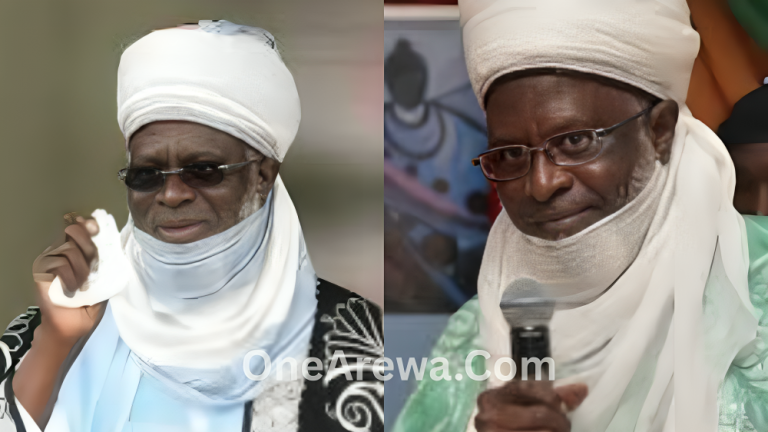General Yakubu Gowon: Nigeria’s Youngest Head of State and Civil War Leader (1966–1975)
General Yakubu Gowon: Nigeria’s Youngest Head of State and Civil War Leader (1966–1975)
General Yakubu Gowon (born October 19, 1934) was a Nigerian military officer and statesman who served as Head of State from 1966 to 1975.
He rose to power after a military coup in 1966, making him the youngest military leader in Nigerian history at the age of 31.
He led Nigeria during the Nigerian Civil War and is famous for his “no victor, no vanquished” speech, promoting national unity post-war.
He played a key role in creating 12 states from the original four regions, which some viewed as reducing Eastern power.
After his reign, Gowon lived in exile and wrote a book on the civil war. He remained active in various political and social causes and served on the United Nations Foundation board.
Gowon played a key role in the Nigerian Civil War (1967–1970), leading the federal government forces against the secessionist Biafra.
After the war ended, he famously declared “No victor, no vanquished,” stressing national unity and reconciliation.
During his tenure, he also implemented key reforms and promoted economic and educational development. Gowon was ousted in a 1975 coup and later became an elder statesman.
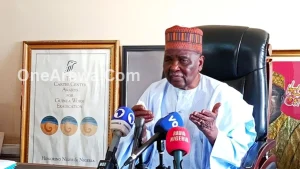
General Yakubu Gowon Wikipedia
| Fact | Details |
|---|---|
| Full Name | Yakubu Dan-Yumma Gowon |
| Date of Birth | October 19, 1934 |
| Current Age | 91 years old (as of 2025) |
| Place of Birth | Kanke, Plateau State, Nigeria |
| Ethnicity | Ngas (Angas) ethnic group |
| Military Rank | General (Retired) |
| Position | Head of State, Nigeria (1966–1975) |
| Youngest Head of State | Became Nigeria’s head of state at age 31 |
| Years in Power | 1966–1975 (9 years – longest-serving military ruler) |
| Major Historical Role | Led Nigeria through the Civil War (1967–1970) |
| Key Quote | “No victor, no vanquished” |
| Reform Initiatives | Creation of 12 states from 4 regions in 1967 |
| Education | PhD in Political Science, University of Warwick (UK) |
| Post-Leadership Career | Professor of Political Science at the University of Jos |
| Founder | Yakubu Gowon Centre (1992 – public health & governance focus) |
| Global Roles | Board member, UN Foundation; involved in Guinea Worm and HIV programs |
| ECOWAS Role | Founding father of ECOWAS; advocate for West African unity |
| Controversy | Wrongly accused in the UK Parliament (2020); widely defended in Nigeria |
| Honors | Numerous national and international honors for service and leadership |
| Marital Status | Married to Victoria Gowon |
| Legacy | Symbol of national unity, integrity, and post-war reconciliation |
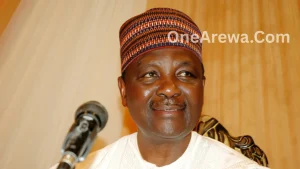
General Yakubu Gowon’s Early Life and Education
General Yakubu Gowon was born on October 19, 1934, in Pankshin, located in Plateau State, Nigeria. He was born into a Christian family of the Ngas ethnic group in northern Nigeria.
His father, a community leader, played an influential role in shaping his early values.
Gowon was the last of six children, and his family instilled in him the importance of education and service to his community.
He attended Barewa College in Zaria, which was one of the top schools in Nigeria at the time.
Gowon excelled academically and displayed a keen interest in the military, which led him to pursue a career in the Nigerian Army.
His journey in the army began when he entered the Nigerian Military Training College (NMTC) in 1955.
He later attended the Royal Military Academy Sandhurst in the United Kingdom in 1957, where he trained alongside future Nigerian military leaders.
This early education laid the foundation for his leadership and military career, which would later lead him to the pinnacle of power in Nigeria.
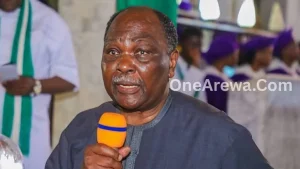
General Yakubu Gowon Career
General Yakubu Gowon’s career spanned both the military and political arenas, with pivotal moments that shaped Nigeria’s history.
Military Career:
1954: Gowon joined the Nigerian Army at the age of 20. His military career began when he was commissioned as a Second Lieutenant after completing his training at the Nigerian Military Training College (NMTC).
Royal Military Academy Sandhurst: Gowon attended this prestigious military academy in the United Kingdom, where he underwent officer training, gaining knowledge and experience that would serve him in later years.
Rising Through the Ranks: He quickly rose through the ranks due to his exemplary leadership and military capabilities. By the time of the Nigerian Civil War (1967-1970), Gowon was a Brigadier-General and had earned recognition for his strategic thinking.
Chief of Staff, Supreme Headquarters: Prior to his rise to power, he served as the Chief of Staff in the Supreme Headquarters, giving him significant influence in the governance of Nigeria.
Role in the Nigerian Civil War:
1966: After the coup d’état that overthrew Nigeria’s first military leader, General Aguiyi-Ironsi, Gowon was appointed as the Head of State by the military council.
He was only 31 years old at the time.
Leadership During the Civil War: Gowon became a central figure in the Nigerian Civil War, also known as the Biafran War (1967-1970).
His leadership was crucial in overseeing military operations against the secessionist state of Biafra, which was led by Colonel Odumegwu Ojukwu.
Under his leadership, the Nigerian military successfully defeated the Biafran forces, culminating in the end of the war and the reunification of Nigeria in 1970.
Post-War Reconciliation: Following the war, Gowon was instrumental in overseeing the reconstruction and reconciliation of the war-torn regions, focusing on healing the divisions within the country.
His “No victor, no vanquished” policy helped to promote national unity after the war.
Leadership as Head of State:
Gowon’s Presidency (1966-1975): After becoming Head of State, Gowon ruled Nigeria as a military leader.
His tenure was marked by major economic and social reforms, including the introduction of state creation (to divide Nigeria into 12 states in 1967), a step aimed at managing Nigeria’s diversity and preventing future conflicts.
Development Policies: Gowon’s administration focused on nation-building, education, and infrastructure development.
He promoted national unity and economic growth, especially in the aftermath of the civil war.
His government also established the Nigerian National Petroleum Corporation (NNPC), which helped to harness Nigeria’s oil resources.
End of Gowon’s Rule:
In 1975, Gowon was overthrown by a military coup led by General Murtala Mohammed, after ruling for nearly a decade.
His administration was criticized for corruption and inefficiency in the management of Nigeria’s oil boom.
Despite his ousting, Gowon remained an influential figure in Nigerian politics.
Post-Military Career:
After being overthrown, Gowon went into exile in the United Kingdom for several years.
However, he returned to Nigeria after the amnesty was granted in the late 1980s.
Gowon became involved in global diplomacy, focusing on peacekeeping efforts and conflict resolution in Africa.
He worked with several organizations, including the United Nations and the African Union, and advocated for African unity.
NOTE: Gowon’s legacy in Nigeria is significant. He is remembered as a statesman who played a pivotal role in the nation’s development, especially during a time of great crisis.
Despite the challenges during his rule, his vision for national unity and economic growth left an enduring impact on Nigeria’s history.
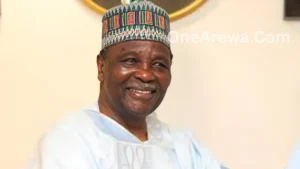
General Yakubu Gowon Rise to Power
Gowon assumed power following a counter-coup on July 29, 1966, which resulted in the assassination of then-Head of State General Johnson Aguiyi-Ironsi.
At just 31 years old, Gowon became Nigeria’s youngest military leader. His leadership was instrumental in navigating the country through the Nigerian Civil War (1967–1970), also known as the Biafran War.
Nigerian Civil War and “No Victor, No Vanquished”
During the civil war, Gowon led the federal government forces against the secessionist state of Biafra. The conflict resulted in significant loss of life and widespread suffering.
Upon the war’s conclusion in January 1970, Gowon delivered the famous “No victor, no vanquished” speech, emphasizing national reconciliation and unity.
Check Out: Sir Abubakar Tafawa Balewa: Nigeria’s First Prime Minister (1912-1966)
Leadership and Governance
During his time in office, Gowon introduced many reforms aimed at rebuilding Nigeria after the devastation of the civil war.
His government abolished regional governments and replaced them with 12 states in 1967 to promote national unity and reduce ethnic tensions. This move significantly reshaped the country’s political structure.
Gowon’s regime also emphasized economic development and nation-building.
He led various infrastructure projects, including the construction of roads, bridges, and educational institutions, to enhance Nigeria’s economic capacity.
However, his government also faced criticism for corruption and military excesses.
In 1975, after nearly 9 years in power, General Gowon was overthrown in a military coup led by Brigadier-General Murtala Mohammed.
Post-Government Life
After his ousting, Gowon went into exile in the United Kingdom for a short period. Upon returning to Nigeria, he became a prominent statesman and elder statesman, maintaining influence in national politics.
He also became involved in several international peace missions and conflict resolution efforts, particularly within Africa.
In addition to his political activities, Gowon remained active in various organizations, including Christian associations and academic institutions.
He has written books and speeches focusing on Nigerian unity, leadership, and the importance of national reconciliation.
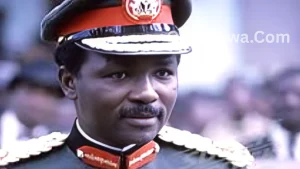
General Yakubu Gowon’s Family Background
Gowon was born into a Christian family of the Ngas ethnic group in a small village in the Middle Belt region of Nigeria.
His father, Davou Gowon, was a farmer and church leader, while his mother, Hannah Gowon, was a homemaker.
His upbringing in a rural, religious household shaped his values of service, humility, and commitment to his faith.
He attended several schools in his youth, excelling in his studies and becoming the first in his family to attend military school.
His disciplined upbringing laid the foundation for his future military and political career.
Marriage and Family Life:
General Gowon is married to Victoria Gowon (née Zakari). The couple got married in 1969 while Gowon was serving as Head of State.
Victoria has been an important part of his life and a supportive figure during his military career and leadership of Nigeria.
Together, they have four children, two sons and two daughters.
Their marriage has been a significant source of support, and Victoria has maintained a low public profile, focusing on family and humanitarian work.
She played an important role in charity and women’s development during Gowon’s time in office, aligning with her husband’s focus on the welfare of the Nigerian people.
Gowon’s personal life has been largely private, and he is known to be a family-oriented individual.
Despite the pressures of military leadership and political life, he managed to maintain a stable home life.
Religious Faith:
A devout Christian, General Gowon has consistently spoken about the role of faith in his life and leadership.
His Christian beliefs were a guiding influence in his approach to governance, particularly in his focus on peace, reconciliation, and national unity after the Nigerian Civil War.
During his leadership, Gowon emphasized the importance of Christian values, often seeking guidance from his faith in moments of national crisis.
He publicly acknowledged the role of prayer and divine intervention in Nigeria’s survival through the civil war, which he attributed to God’s will.
Check Out: Mallam Aminu Kano (1920–1983): Biography, Legacy, Political Influence, and Lessons from His Life
General Yakubu Gowon Award and Honor
| Award/Honor | Year | Reason |
|---|---|---|
| Grand Commander of the Order of the Niger (GCON) | Highest National Honor in Nigeria | For leadership during and after the Nigerian Civil War. |
| Commander of the Federal Republic (CFR) | Nigeria’s National Honor | Recognition of outstanding service to Nigeria. |
| International Peace Prize | Various Years | For efforts in peacebuilding and national reconciliation post-civil war. |
| Honorary Doctorate | Various Universities | For contributions to education and leadership. |
| Humanitarian Leadership Award | Various Years | For work in humanitarian efforts, including education and healthcare. |
| Peacebuilder Award | Various Years | For contributions to peace and unity, particularly in post-civil war Nigeria. |
| African Leadership Award | Various Years | For outstanding leadership and peace advocacy in Africa. |
General Yakubu Gowon Later Life
After earning his doctorate at the University of Warwick, Gowon became a professor of political science at the University of Jos in the mid-1980s.
In 1992, he founded the Yakubu Gowon Centre, focusing on issues like good governance, infectious disease control, and HIV/AIDS, alongside efforts in eradicating diseases like guinea worm and malaria.
Gowon is also actively involved in the Guinea Worm Eradication Programme and the HIV Programme with the Global Fund of Geneva.
In November 2020, British MP Tom Tugendhat accused Gowon of looting “half of the Central Bank of Nigeria” following his overthrow in the 1975 coup.
The accusation, the first to link Gowon with corruption, was widely rejected in Nigeria. Bishop Matthew Kukah criticized the claim, defending Gowon’s reputation as a symbol of probity in public life.
Following official demand for an apology from the Nigerian government, the UK Foreign Office clarified that the MP’s statement did not reflect the views of the British government.
In February 2024, as the last surviving founder of ECOWAS, Gowon called for the bloc to lift sanctions against Mali, Burkina Faso, and Niger, whose military governments had withdrawn from the organization in protest of the sanctions.
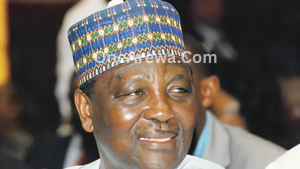
Some Facts About Yakubu Gowon
1. Youngest Head of State: At the time of his ascension, Gowon was the youngest person to become the Head of State of Nigeria, taking office at the age of 31 after the July 1966 coup.
2. Longest-Serving Military Leader: Gowon served as Nigeria’s military head of state for nearly 9 years, from 1966 to 1975, which made him the longest-serving military leader in the country’s history.
3. “No Victor, No Vanquished”: One of his most memorable quotes came at the end of the Nigerian Civil War (1967-1970), where he declared, “No victor, no vanquished,” promoting reconciliation between the regions.
4. Creator of Nigeria’s 12 States: In 1967, during his regime, he restructured Nigeria by creating 12 states from the country’s former four regions, which significantly changed Nigeria’s political landscape.
5. Academic Achievements: After his military career, Gowon earned a doctorate from the University of Warwick and went on to become a professor at the University of Jos in the 1980s.
6. Philanthropic Efforts: Gowon is the founder of the Yakubu Gowon Centre, which works on issues like good governance, disease eradication, and healthcare initiatives, particularly in combating HIV/AIDS, malaria, and guinea worm.
7. Global Peace Efforts: Gowon has been involved in various global peace and diplomatic efforts, particularly through his roles in organizations such as ECOWAS and his support for sanction lifting in Mali, Burkina Faso, and Niger.
8. Controversial Accusation: In 2020, Gowon faced accusations from British MP Tom Tugendhat of looting the Central Bank of Nigeria after his 1975 coup ouster, though the claim was widely criticized and denied.
9. Role in ECOWAS: As the last surviving founder of ECOWAS, Gowon remains an important figure in West African diplomacy and is frequently involved in peace negotiations in the region.
10. Military Officer Background: Before becoming the Head of State, Gowon was a trained military officer who joined the Nigerian Army in 1954 and rose through the ranks quickly due to his strategic and leadership skills.
Check Out: Abubakar Imam (1911–1981): Northern Nigeria’s Pioneer Intellectual and Political Icon
General Yakubu Gowon Legacy
General Yakubu Gowon is remembered for promoting national unity through his “No Victor, No Vanquished” policy after the Nigerian Civil War.
He laid the foundation for modern federalism by creating 12 states, championed education and development, and was Nigeria’s longest-serving military head of state.
A founding figure of ECOWAS, he continued to support peace, good governance, and public health through his post-leadership initiatives like the Yakubu Gowon Centre.
Gowon is widely respected for his integrity and lasting contributions to Nigeria and West Africa.
FAQs
Q1: Who is Yakubu Gowon?
General Yakubu Gowon is a retired Nigerian military officer and statesman who served as Nigeria’s Head of State from 1966 to 1975.
He led the country through the Nigerian Civil War and is known for his reconciliation policy, “No victor, no vanquished.”
Q2: When and where was he born?
He was born on October 19, 1934, in Kanke, Plateau State, Nigeria.
Q3: How old was Gowon when he became Head of State?
He was just 31 years old, making him the youngest Nigerian leader to assume the position of Head of State.
Q4: What is he most remembered for as a leader?
-
Leading Nigeria during the Civil War (1967–1970)
-
His “No victor, no vanquished” reconciliation policy
-
The creation of 12 states to replace the 4 regions
-
Initiating the 3Rs policy: Reconstruction, Reconciliation, and Rehabilitation
Q5: Why was he overthrown in 1975?
He was overthrown in a bloodless coup led by Brigadier Murtala Mohammed due to growing frustrations over slow progress toward democratic rule, corruption concerns, and economic mismanagement.
Q6: What did he do after leaving power?
-
Moved abroad and earned a PhD in Political Science from the University of Warwick (UK)
-
Became a professor at the University of Jos
-
Founded the Yakubu Gowon Centre, focusing on public health and good governance
-
Contributed to global health efforts like the Guinea Worm Eradication and HIV/AIDS programs
Q7: What controversies has he faced?
In 2020, a British MP accused him of looting half of Nigeria’s central bank, a claim that was widely condemned in Nigeria and disowned by the UK government. Many defended Gowon as a symbol of integrity.
Q8: Is he still alive?
Yes, as of 2025, General Yakubu Gowon is 91 years old and remains active in public affairs, especially with ECOWAS and unity campaigns in Africa.
Q9: What is his legacy?
-
Preserving Nigeria’s unity during and after the civil war
-
Promoting national reconciliation
-
Establishing a blueprint for state creation
-
Serving as a voice of wisdom and elder statesman in Nigerian and African politics.
In Conclusion
General Yakubu Gowon stands as one of the most pivotal figures in Nigeria’s post-independence history.
As the youngest and one of the longest-serving Heads of State, his leadership during the Nigerian Civil War and subsequent reconciliation efforts helped preserve the nation’s unity.
Despite controversies and political setbacks, Gowon’s post-military life has been marked by academic contributions, public health advocacy, and his role as an elder statesman.
His enduring legacy is rooted in peacebuilding, nation-building, and moral integrity, making him a respected icon in Nigerian and African history.
